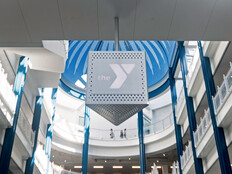Taking the Plunge
Windows Vista, in all of its flavors and variations, has been around for less than a year. The latest flagship operating system from Microsoft has received its fair share of praise, but many organizations are still analyzing this new OS to determine if there is a compelling reason to commit the budget and resources necessary to upgrade.
Organizations that are still on Windows 2000 or older systems have fewer issues to consider. The operating system they are using is at the end of its tenure as a supported product and these organizations have to upgrade to something. Assuming they are staying with a variation of Windows, it would be silly to upgrade to XP when Vista is newer and arguably better.
Businesses that have already made the switch to XP, though, will have a much tougher time rationalizing the upgrade. It essentially comes down to the fact that Vista is “arguably better,” implying that an argument can also be made that XP is just as good. There are definitely improvements in Vista over XP, but it takes a little digging to find them, and if they aren’t concerns for your organization, perhaps the upgrade is not a priority.
What does Vista have that XP doesn’t? A lot. Security has been one of the key mantras of Vista. There are glitzy bells and whistles as well, but many of the features and improvements revolve around security. Here is a brief list of some of the compelling new components of Vista:
- BitLocker — whole disk encryption available in the Enterprise and Ultimate versions of Vista;
- User Account Control — misunderstood and much-maligned security control to ensure that the user or administrator approves of executing programs before they run;
- Windows Integrity Control — mandatory integrity control to segregate applications and provide security against lower integrity applications affecting higher integrity applications;
- Windows Defender — built in anti-spyware application;
- Backup and Restore Center — significantly improved backup makes automated data archiving simple;
- PatchGuard — protects the Windows kernel from being altered or acted upon by unauthorized processes or applications.
Above and beyond the security improvements and features, Vista also includes a number of aesthetic or cosmetic updates. These features fall into the category of components that are cool but not necessarily a business justification for upgrading. Features such as the new Aero Glass graphical user interface or the Vista Sidebar are cool but not necessary for productivity.
The fact is that it is difficult to make a compelling argument to invest in upgrading from Windows XP to Windows Vista just yet. For one thing, Vista requires more central processing unit power, more RAM, and improved display adapters. It can be costly just to upgrade the hardware on the target systems, never mind the cost of purchasing and deploying the Vista operating system.
Vista is more secure. However, with the proper controls and configuration, an enterprise can lock down Windows XP in much the same way. It won’t be as secure as Vista, but it will be secure enough that justifying the business case to upgrade to Vista will be very difficult.
Organizations that are running older, legacy versions of the Windows operating system should seriously consider taking the plunge, though. Vista incorporates improvements in performance and security over XP, and components that help tie it neatly together with other next-generation Microsoft technologies such as Office 2007, Microsoft Office SharePoint Server 2007 and Exchange 2007.
In considering the upgrade, check your existing hardware to make sure it is compatible and capable of running Vista. If not, you will need to factor in the cost of hardware upgrades necessary to roll out Vista to your desktops.
The increased investment, however, is offset by the savings the organization can realize on the support side. New features and controls make central administration of Vista machines more efficient, and the increased security will reduce the number of help desk calls, resulting in day-to-day savings over supporting Windows 2000 or even Windows XP networks.







